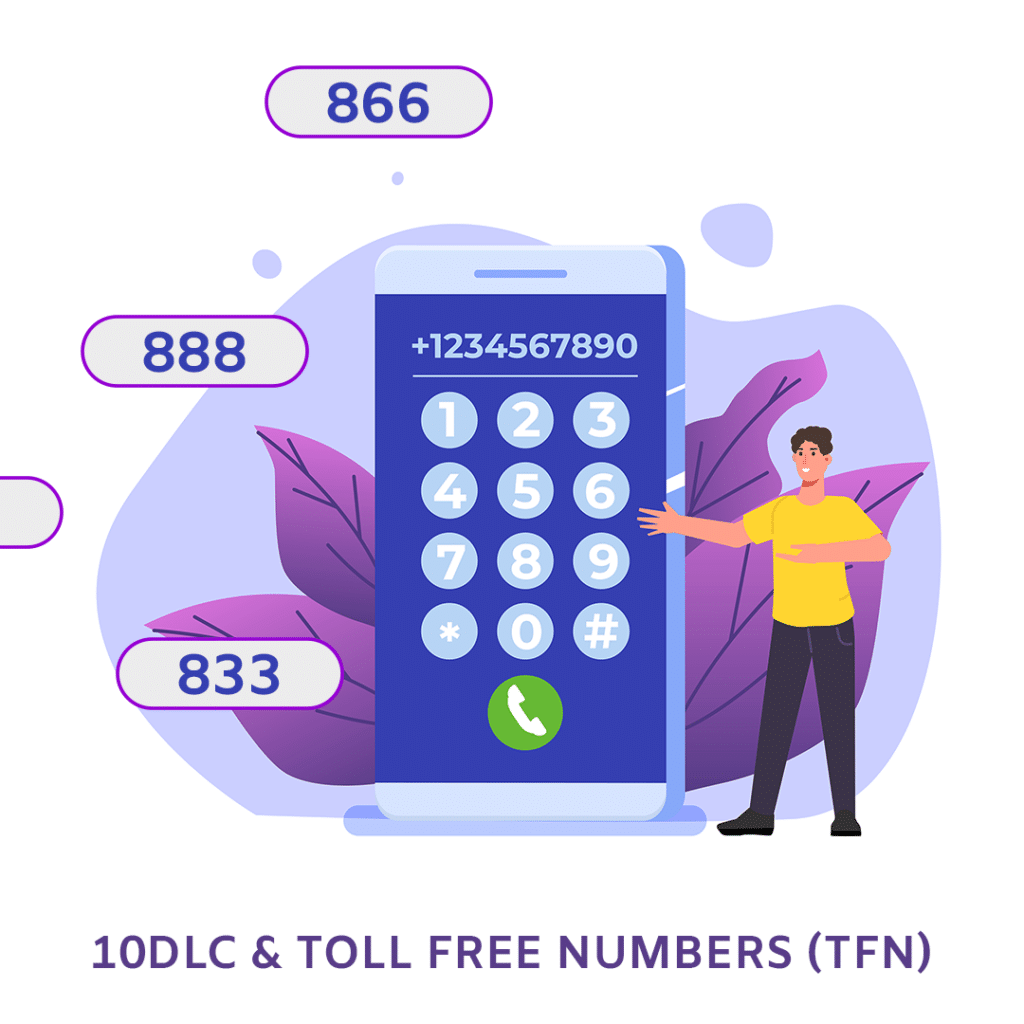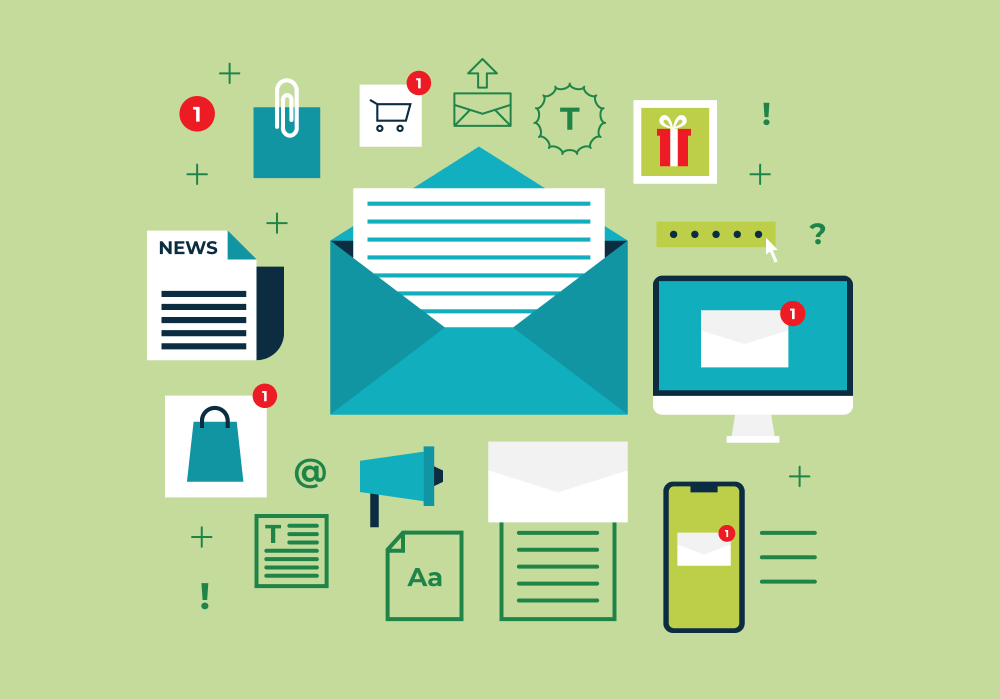📑 Table of Contents
In today’s fast-paced digital world, SMS marketing is a powerful tool to directly connect with customers. For small businesses, leveraging the right SMS marketing tools can dramatically enhance customer engagement and drive sales. Here, we explore 5 great SMS marketing tools perfect for small businesses looking to make a big impact.
Toll-Free Number (TFN)
A Toll-Free Number (TFN) is your first step toward establishing a professional and accessible communication line. It allows customers to reach out to your business without incurring charges, fostering an open line of communication. Using a TFN for SMS marketing builds trust and improves customer service and feedback channels.

SMS Keywords
SMS Keywords are a game-changer for list-building and engagement. Allowing people to text a specific keyword to your business makes it easy for them to opt into your messaging list. This simplicity encourages sign-ups, helping you rapidly expand your audience and keep them engaged with updates, offers, and important alerts.
Sign-Up Forms
Similar to SMS Keywords, Sign-Up Forms are instrumental in growing your customer database. Embed them across your digital platforms—your website, blog, and social media pages—to seamlessly collect visitor information. This proactive approach not only diversifies your strategy but also amplifies your reach.
Group Texting
With a robust list, Group Texting becomes your go-to for mass communication. Segment your audience based on interests, behavior, or demographics, and send targeted messages. Whether it’s holiday greetings, special promotions, or urgent alerts, Group Texting ensures your message gets through, personalizing the customer experience.
MMS (Photos and Videos)
MMS, or Multimedia Messaging Service, elevates your SMS campaigns by adding a visual dimension. Share engaging photos and videos to bring your messages to life. This captures attention and enhances message retention, making your communications more impactful and memorable.
Criteria for Selecting an SMS Marketing Tool
Choosing the right SMS marketing tool is crucial for small businesses to effectively reach and engage their target audience. Here are key factors that small businesses should consider when evaluating SMS marketing tools:
- Ease of Use: Opt for SMS marketing tools that are user-friendly and intuitive. This will allow small business owners and marketers to navigate the platform easily without extensive technical expertise. Look for features such as drag-and-drop editors, customizable templates, and straightforward campaign management interfaces.
- Affordability: Consider the cost-effectiveness of SMS marketing tools, especially for small businesses operating on tight budgets. Look for plans that offer transparent pricing structures, reasonable rates per message or subscriber, and flexible payment options to accommodate varying business needs and growth stages.
- Scalability: Choose SMS marketing tools that can scale alongside your business as it grows. Ensure the tool can handle increasing message volumes, subscriber lists, and campaign complexities without compromising performance or reliability.
- Automation Capabilities: Seek SMS marketing tools that offer robust automation features to streamline campaign management and maximize efficiency. Look for capabilities such as automated workflows, drip campaigns, scheduled messaging, and personalized triggers based on subscriber behavior.
- Compliance with Regulations: Prioritize SMS marketing tools that comply with relevant regulations and industry standards, such as the General Data Protection Regulation (GDPR) and the Telephone Consumer Protection Act (TCPA). Ensure the tool provides mechanisms for obtaining explicit consent from subscribers, honoring opt-out requests, and maintaining data privacy and security.
- Integration with Existing Systems: Consider SMS marketing tools that seamlessly integrate with your existing systems and software, such as customer relationship management (CRM), email marketing software, and e-commerce platforms. Integration enables data synchronization, streamlined workflows, and cohesive omnichannel marketing strategies, enhancing overall efficiency and effectiveness.
- Analytics and Reporting: Look for SMS marketing tools that offer comprehensive analytics and reporting capabilities to track campaign performance, measure key metrics, and gain actionable insights. Features such as delivery rates, open rates, click-through rates, and conversion tracking enable data-driven decision-making and continuous optimization of SMS marketing efforts.
Maximizing Impact with SMS Marketing
To truly harness the power of these SMS marketing tools, small businesses should also consider the following strategies to maximize impact and ensure success:
- Personalize Your Messages: Use the data collected from sign-up forms and SMS keywords to personalize your messages. Tailoring content based on customer preferences and behaviors increases engagement and conversion rates.
- Timing is Everything: Be mindful when you send your messages. Timing can greatly affect how your message is received. Aim for times when your customers will likely read and engage with your content.
- Keep it Short and Sweet: SMS stands for short message service for a reason. Keep your messages concise and to the point. A clear, compelling message is more likely to be read and acted upon than a lengthy one.
- Call to Action (CTA): Include a clear CTA in your messages. Whether visiting a website, taking advantage of a promotion, or attending an event, tell your customers exactly what you want them to do next.
- Compliance and Respect: Ensure you comply with all regulations regarding SMS marketing, including obtaining consent before sending messages. Additionally, provides an easy way for customers to opt out of receiving messages. Respecting customer preferences builds trust and enhances your brand’s reputation.
Best Practices and Tips for Effective SMS Marketing
Small businesses can leverage SMS marketing effectively by following these actionable best practices:

Building Subscriber Lists
- Offer incentives: Encourage customers to opt into your SMS list by offering exclusive discounts, promotions, or valuable content.
- Utilize multiple channels: Promote your SMS list across various touchpoints, including your website, social media channels, and physical store locations.
- Use keywords: Implement keyword-based opt-in methods where customers can text a specific keyword to subscribe to your SMS updates.
Crafting Compelling Messages:
- Keep it concise: SMS messages have a 160-character limit, so keep them short, clear, and straightforward.
- Personalize messages: Address recipients by name whenever possible and tailor messages based on their preferences or past interactions with your business.
- Include a clear call to action (CTA): This should prompt recipients to take specific actions, such as redeeming a discount code, visiting your website, or purchasing.
Optimizing Timing and Frequency:
- Know your audience: Understand the preferences and behaviors of your target audience to determine the optimal timing for sending SMS messages.
- Test different timings: Experiment with sending messages at various times and days of the week to identify the most effective timing for engagement.
- Avoid over-messaging: Respect your subscribers’ time and avoid bombarding them with too many messages. Find a balance between staying top-of-mind and avoiding annoyance.
Measuring Campaign Performance:
- Track key metrics: Monitor delivery rates, open rates, click-through rates, conversion rates, and ROI to evaluate the effectiveness of your SMS campaigns.
- Use UTM parameters: Implement UTM parameters in your SMS links to track traffic and conversions in Google Analytics or other analytics platforms.
- A/B test campaigns: Experiment with different message content, timing, and CTAs to identify what resonates best with your audience and drives the highest response rates.
Compliance and Regulations:
- Obtain consent: Ensure subscribers have explicitly opted in to receive SMS messages from your business and provide clear instructions for opting out.
- Comply with regulations: Familiarize yourself with local laws, such as GDPR and TCPA, and ensure compliance with rules regarding data privacy, consent, and messaging frequency.

Leveraging Technology for Efficiency
Incorporating these tools into your marketing strategy doesn’t have to be a manual, time-consuming process. Many SMS marketing platforms offer automation features, allowing you to schedule messages, segment your audience, and personalize communications based on customer actions or milestones. Leveraging technology streamlines your operations and enables you to deliver timely, relevant messages that resonate with your audience.
Remember, SMS marketing isn’t just about broadcasting messages; it’s also about engagement. Encourage two-way communication by asking for feedback, answering questions, and having real conversations with your customers. This enhances customer service and provides valuable insights into your audience’s needs and preferences.
Conclusion
SMS marketing presents a unique opportunity for small businesses to connect with their customers on a personal level. By utilizing these five tools—Toll-Free Numbers, SMS Keywords, Sign-Up Forms, Group Texting, and MMS—you can build a comprehensive strategy that enhances customer engagement, boosts loyalty, and drives growth. Pair these tools with thoughtful timing, personalization, and compliance to create an SMS marketing campaign that truly stands out.
